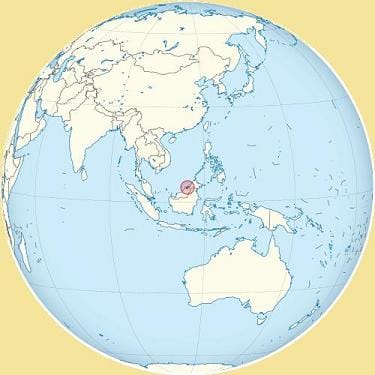China Expands Influence in South China Sea with Strategic Ally

While the American media's interest in Asia seems solely focused on the recovery efforts of Flight 370, China is once again expanding its sphere of influence by holding multi-national joint naval drills at the end of this month. The People's Daily News has reported that ships from 4 countries have already arrived, with officers from over 20 nations expected to participate.
Last month, I reported that China was making significant changes to its overall military strategy, changes that were a fundamental departure from Maoist and Taiwan strategies. This appears to be a continuation of this theme, with a significant plot twist. The tiny nation of Brunei will participate for the first time in military exercises with Chinese forces.
Brunei was once a small British colony located on the South China Sea and is part of the larger island of Borneo. Brunei gained its independence from the U.K. in 1984, and has very rich oil and gas production and reserves. Even more impressive, almost unheard of in the modern world, Brunei has almost no national debt.

Strategic alliance with Brunei makes sense for the Chinese government. Brunei offers natural resources and economic capital, while the Chinese offer considerable military and political protection. It also gives China an important regional ally when it comes to the increasing territorial disputes in the South China Sea.
Currently, China is locked in territorial disputes with the Philippines, Vietnam, and Indonesia. This move potentially gives China a forward position that is centrally located to all three disputed regions.
Australia already sees China as its biggest threat, both militarily and economically. While American influence in the region continues to shrink, Chinese influence is expanding at a rapid pace.
The American reaction to these developments seems a bit small in comparison, increasing the number of U.S. Marines deployed in Darwin, Australia to 1,000 (from 250) with the intention of increasing to 2,200. The sad reality is that the United States has few allies in the South China Sea, even relations with the Philippines have strained in recent years.
For America to have a clear-cut strategy against the growing influence of the Chinese military, we will have to win back the popular support of the Oceanic nations -- something that is going to take a considerable nonpartisan effort from the American government.
Newspapers in China, Australia, and Britain have all mocked the American fascination with searching for the missing plane. Perhaps it's easier to hunt for a mystery in the middle of the ocean than deal with the real looming dangers that await us there.
No photo credit attributed



